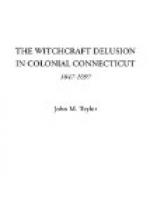It is a remarkable code, quickly made available through translation and transliteration by the Assyrian scholars, and justly named, from its royal compiler, Hammurabi’s code. He was an imperialist in purpose and action, and in the last of his reign of fifty-five years he annexed or assimilated the suzerainty of Elam, or Southern Persia, with Assyria to the north, and also Syria and Palestine, to the Mediterranean Sea.
This record in stone originally contained nineteen columns of inscriptions of four thousand three hundred and fourteen lines, arranged in two hundred and eighty sections, covering about two hundred separate decisions or edicts. There is substantial evidence that many of the laws were of greater antiquity than the code itself, which is a thousand years older than the Mosaic code, and there are many striking resemblances and parallels between its provisions, and the law of the covenant, and the deuteronomy laws of the Hebrews.
The code was based on personal responsibility. It protects the sanctity of an oath before God, provides among many other things for written evidence in legal matters, and is wonderfully comprehensive and rich in rules for the conduct of commercial, civic, financial, social, economic, and domestic affairs.
These sections are notably illustrative:
“If a man, in a case (pending judgment), utters threats against the witnesses (or), does not establish the testimony that he has given, if that case be a case involving life, that man shall be put to death.
“If a judge pronounces a judgment, renders a decision, delivers a verdict duly signed and sealed and afterwards alters his judgment, they shall call that judge to account for the alteration of the judgment which he had pronounced, and he shall pay twelvefold the penalty which was in the said judgment, and, in the assembly, they shall expel him from his seat of judgment, and he shall not return, and with the judges in a case he shall not take his seat.
“If a man practices brigandage and is captured, that man shall be put to death.
“If a woman hates her husband, and says: ‘thou shalt not have me,’ they shall inquire into her antecedents for her defects; and if she has been a careful mistress and is without reproach and her husband has been going about and greatly belittling her, that woman has no blame. She shall receive her presents and shall go to her father’s house.
“If she has not been a careful mistress, has gadded about, has neglected her house and has belittled her husband, they shall throw that woman into the water.
“If a physician operates on a man for a severe wound with a bronze lancet and causes the man’s death, or opens an abscess (in the eye) of a man with a bronze lancet and destroys the man’s eye, they shall cut off his fingers.
“If a builder builds a house for a man and does not make its construction firm and the house, which he has built, collapses and causes the death of the owner of the house, that builder shall be put to death.”




